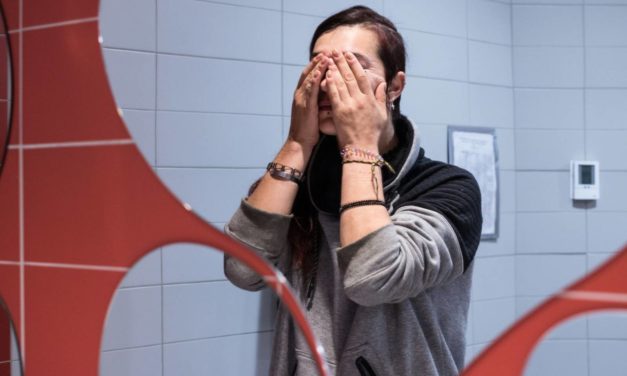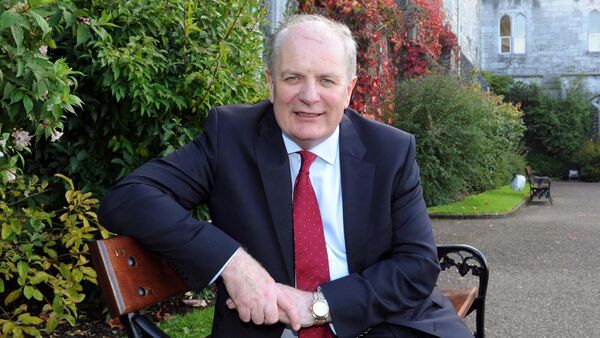The Covid-19 pandemic has been a momentous challenge to businesses, workers and communities. It has intensified existing trends around globalisation, technological advance, changing economic structures, demographic change and gender equality, as well as calling into question the very way work is done.
Despite the changing times we live in, creating and maintaining high-quality jobs remains the primary goal in the evolving world of work. And while workplaces characterised by soot and debris are gradually becoming a thing of the past in Europe, we are living through a widespread and dangerous workplace contagion catalysed by Covid-19: stress.
Psychosocial risks are on the rise. These are risks that arise from the design and management of work and its social and organisational context and that have the potential to cause psychological and physical harm. These risks were already increasing in workplaces in Ireland and throughout Europe prior to the pandemic: In 2017 the European Commission noted that the phenomenon was having a “serious impact on productivity” and was “among the most challenging – and growing – occupational safety and health concerns″.
Where does this come from? Many aspects contribute to increased workplace stress; an important one is that, while paid working hours have generally declined for workers in Europe this century, work intensity has increased for many, and especially so for health professionals and service and sales workers.
43 per cent of workers in the EU reported experiencing emotionally disturbing situations in 2021
More workers also have emotionally demanding work: in the 2010 European Working Conditions Survey, a quarter of workers reported that they hid their feelings at work; in the subsequent 2015 survey, this figure had risen to 31 per cent. In response to an additional related question in 2015, asking respondents whether they have been present in emotionally disturbing situations, 30 per cent reported that they had.
The pandemic, its emotional toll and the integration of work into the home in response to it have pushed issues such as emotional demands, stress, work intensity and problematic working time to new levels. For example, forthcoming research from Eurofound this autumn will show that 43 per cent of workers in the EU reported experiencing emotionally disturbing situations in 2021, with close to a fifth (19 per cent) saying that this was often or always the case. While we must recognise that these working conditions occurred in a specific and unique context, the realities cannot be ignored.
Eurofound’s research on working conditions during the pandemic show that, while the majority of workers embraced telework, it took its toll on the psychological health of a number of population groups – including younger workers and workers with young children. Respondents to Eurofound’s July 2020 Living, working and Covid-19 online survey who were working from home were more likely to report longer working hours. Among these, 20 per cent felt isolated and 39 per cent felt emotionally drained by work always or most of the time. This compares to with 14 per cent and 34 per cent, respectively, among those who worked the same range of hours at an employer’s premises. The first results of the latest round of the survey, conducted throughout Europe this past spring, will be published early in July.
The pandemic exposed persistent inequalities in the labour market
In addition to creating difficult working environments for many, the pandemic also exposed persistent inequalities in the labour market. Measures taken by governments to control the spread of the virus exacerbated gender divides in domestic labour and financial security, to the disadvantage of women. While women were more likely to be in teleworkable jobs that survived the crisis, they also struggled more with the work-life balance complications that bringing work into the household entailed.
In terms of employment contract, the present EU labour market breaks down roughly 3:2 between workers who have standard full-time permanent employment and those who do not. Temporary workers, particularly those in non-teleworkable occupations such as services and sales jobs, elementary occupations (for example, office cleaners, building caretakers and street vendors) and blue-collar occupations were disproportionately impacted by Covid-19 job losses in Europe, with temporary jobs accounting for three-quarters of net job loss in the EU in 2020.
This was exacerbated by the fact that state intervention and fiscal support – indispensable to protecting economies and labour markets in the face of the large, unanticipated shock of the pandemic – provided less coverage to those in non-standard employment such as temporary work. This situation put an additional strain on young people, who are more likely to be in non-standard employment.
Addressing the increased emotional demands and intensification of work, as well as enduring labour market precarity, must now be a priority for policymakers, businesses and the social partners in the aftermath of the pandemic, as the pace of workplace and labour market change in Ireland and Europe more broadly shows little sign of abating.
Digital technologies in the workplace are transforming the content of jobs, which could be beneficial or harmful to job quality depending on their implementation. Contrary to popular belief, job loss is not the key labour market issue with digitalisation, but rather a deepening divide between those whose working lives benefit from it and those who get left behind.
About 30 per cent employees in the EU are at risk of falling into the digital skills gap
About 30 per cent employees in the EU are at risk of falling into the digital skills gap and are therefore unlikely to see improvements in job quality or discover new opportunities. Digitalisation may also increase atypical forms of employment, including less secure employment relationships (such as shorter fixed-term contracts or part-time employment with fewer hours), subcontracting and outsourcing. It may also result in increased categorisation of workers as self-employed because many hired as independent contractors in fact have limited autonomy in how they do their work, due to the way in which digital processes and online platforms operate.
It is important that Europe is well-positioned to reap the benefits of digitalisation, particularly Ireland, which is in many respects at the coalface of digital change. Europe’s broader green transition, an absolute imperative given the mounting challenges of climate change, also brings numerous potential benefits, including economic growth, new jobs and increased employment. However, we must not lose sight of the foundations of secure and safe working environments in which workers can innovate and prosper.
The pandemic may have exposed weaknesses and created new challenges, but it also showed that there is incredible resilience among businesses and workers in Europe. By taking comprehensive actions at all levels, from workplace to legislative, to increase job security and tackle stress, Europe can surely look forward to an era of rapid change with confidence and optimism.
- Irish Timeshttps://www.recruitireland.com/advice-centre/author/irish-times/
- Irish Timeshttps://www.recruitireland.com/advice-centre/author/irish-times/
- Irish Timeshttps://www.recruitireland.com/advice-centre/author/irish-times/
- Irish Timeshttps://www.recruitireland.com/advice-centre/author/irish-times/









